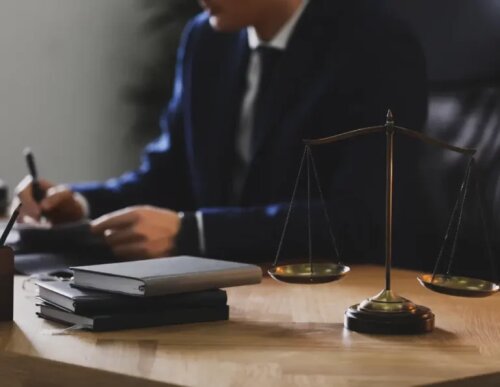Best Assault & Battery Lawyers in Charlotte
Share your needs with us, get contacted by law firms.
Free. Takes 2 min.
List of the best lawyers in Charlotte, United States
About Assault & Battery Law in Charlotte, United States:
Assault & Battery in Charlotte, United States refers to the intentional physical harm or threat of harm towards another person. Assault is the act of placing someone in fear of imminent harm, while battery involves the actual physical contact. These offenses can result in criminal charges and civil lawsuits.
Why You May Need a Lawyer:
You may need a lawyer in cases of Assault & Battery in Charlotte if you are facing criminal charges, have been wrongfully accused, or wish to seek compensation for damages. A lawyer can help protect your rights, navigate the legal system, and build a strong defense on your behalf.
Local Laws Overview:
In Charlotte, Assault & Battery are typically prosecuted as separate offenses under North Carolina law. Assault charges can range from simple assault (misdemeanor) to assault with a deadly weapon (felony). Battery charges usually involve physical harm or injury caused to another person. It is important to understand the specific elements of these offenses and the potential penalties involved.
Frequently Asked Questions:
Q: What is the difference between assault and battery?
A: Assault involves the threat of harm, while battery involves physical contact or harm inflicted on another person.
Q: Can I defend myself against assault charges?
A: Yes, self-defense is a valid legal defense in assault cases if you were acting to protect yourself or another person from harm.
Q: What are the potential penalties for assault and battery convictions?
A: Penalties can vary depending on the severity of the offense, but may include fines, probation, jail time, and restitution to the victim.
Q: Can I sue someone for assault or battery in civil court?
A: Yes, you can file a civil lawsuit to seek compensation for damages, medical expenses, pain and suffering, and other losses resulting from the assault or battery incident.
Q: How can a lawyer help me in an assault and battery case?
A: A lawyer can provide legal advice, represent you in court, negotiate with prosecutors, gather evidence, and advocate for your best interests throughout the legal process.
Q: What are the common defenses against assault and battery charges?
A: Common defenses include self-defense, defense of others, lack of intent, consent, alibi, and mistaken identity.
Q: What should I do if I have been a victim of assault or battery?
A: Seek medical attention, report the incident to law enforcement, collect evidence (witness statements, photos, medical records), and consider consulting with a lawyer to explore your legal options.
Q: How long do I have to file a lawsuit for assault or battery?
A: The statute of limitations for filing a civil lawsuit for assault or battery in North Carolina is typically two years from the date of the incident.
Q: Can I press charges for assault or battery without the victim's consent?
A: In criminal cases, charges are typically brought by law enforcement and the district attorney's office, not the victim. However, the victim's cooperation and testimony are crucial for a successful prosecution.
Q: How can I find a qualified lawyer for an assault and battery case?
A: You can ask for referrals from friends or family, contact local bar associations for recommendations, or search online for experienced criminal defense attorneys with expertise in assault and battery cases.
Additional Resources:
If you need legal assistance for Assault & Battery in Charlotte, you may consider contacting the Mecklenburg County Bar Association or the North Carolina Advocates for Justice for referrals to reputable lawyers specializing in criminal defense.
Next Steps:
If you are facing Assault & Battery charges in Charlotte, it is important to seek legal advice promptly. Contact a qualified lawyer to discuss your case, understand your rights, and explore your defense options. Remember to document all evidence and cooperate with law enforcement while protecting your legal interests.
Lawzana helps you find the best lawyers and law firms in Charlotte through a curated and pre-screened list of qualified legal professionals. Our platform offers rankings and detailed profiles of attorneys and law firms, allowing you to compare based on practice areas, including Assault & Battery, experience, and client feedback.
Each profile includes a description of the firm's areas of practice, client reviews, team members and partners, year of establishment, spoken languages, office locations, contact information, social media presence, and any published articles or resources. Most firms on our platform speak English and are experienced in both local and international legal matters.
Get a quote from top-rated law firms in Charlotte, United States — quickly, securely, and without unnecessary hassle.
Disclaimer:
The information provided on this page is for general informational purposes only and does not constitute legal advice. While we strive to ensure the accuracy and relevance of the content, legal information may change over time, and interpretations of the law can vary. You should always consult with a qualified legal professional for advice specific to your situation.
We disclaim all liability for actions taken or not taken based on the content of this page. If you believe any information is incorrect or outdated, please contact us, and we will review and update it where appropriate.










